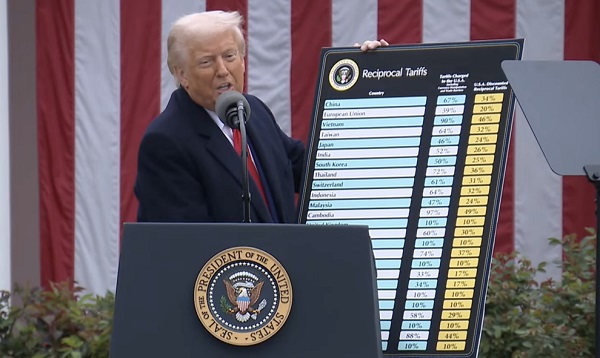Business
Government laws designed to rescue Canadian media have done the opposite

From the MacDonald-Laurier Institute
This article first appeared as the cover story to our September 2023 issue of Inside Policy. You can download the full issue here.
By Peter Menzies, October 4, 2023
The federal government has made a regulatory mess with wrongheaded legislation targeting digital media content.
Few things are more fundamental to a nation’s economic prosperity and social cohesion than a robust communications framework.
Canada has its challenges in terms of rural and northern internet and mobile connectivity, but the nation’s overall communications mainframe is, by most international measures, in good shape. The rest of the story involving what gets carried on the mainframe (i.e., the actual content) isn’t as pretty. In fact, two recent communications policy initiatives proposed by the federal government have put tens of thousands of jobs at risk in the creative and news industries.
Money goes where it is likely to generate profit, and if some key arteries aren’t unclogged quickly, the flow of communications investment dollars in Canada could seize up. Worse, the future of what has been a thriving creative economy, driven by independent content creators, is now uncertain.
Meanwhile, the news industry is on the cusp of becoming permanently reliant on government subsidies – a dependency that’s certain to undermine the public’s already wavering trust in its independence.
But first, the good news. While measures vary by source and date, Canada consistently ranks among the world’s top 20 nations when it comes to fixed broadband connectivity, and as high as No. 1 in the world when it comes to mobile internet capacity. Given that most of nations in the top ten for broadband connectivity are smaller in landmass than Prince Edward Island, this is a considerable achievement for a country the size of Canada. This connectivity, however, has come at a premium – consumer in this country are historically among those paying the highest rates anywhere in the world, particularly when it comes to mobile plans. Costs to consumers remain high but have been trending downward in recent years as carriers shift strategic priorities from acquiring new consumers to retaining existing ones.
Far more challenging is a regulatory environment that is less than friendly when it comes to attracting private investment. The Canadian Radio-television and Telecommunications Commission (CRTC) has been risk-averse in its dealings with Mobile Virtual Network Operators (MVNOs) and smaller Internet Service Providers (ISPs) looking for competitive access rates to incumbent networks. Still, competition is one area that appears to be a priority for the CRTC. The regulator’s new chair, Vicky Eatrides, has a background in competition policy; a new vice chair, Adam Scott, is thoroughly familiar with the Telecom industrial framework; and the new Ontario Regional Commissioner, Bram Abramson, has experience as a regulatory officer for a smaller telco. (Abramson’s former employer, TekSavvy Solutions, recently waved the white flag in its efforts to compete in the Canadian market and put itself up for sale.)
Now the bad news – and, fair warning, there’s a lot of it.
Canada is aggressively regulating the internet – not in priority areas such as privacy, algorithms and data collection, but in terms of its content and its users’ freedom of navigation. The Online Streaming Act (Bill C-11) came into force in the spring, amending the Broadcasting Act to define the internet’s audio and video content as “broadcasting” and, as such, placing all this content under the authority of the CRTC. The goals remain the same as they did during the broadcast radio and cable television world of the early 1990s: the funding of certified TV and film properties, ensuring Canadian content (CanCon) gets priority over foreign programming and ensuring designated groups – BIPOC and LGBTQ2S, among other acronyms – and official language minorities are represented. How exactly the CRTC intends to achieve this without disrupting what has been a booming decade for film and television production in a freewheeling global market remains to be seen. As does how it will give its supply-managed content priority without imposing economic harm on the 100,000 Canadians who earn a living in the unlicensed, uncertified world of YouTube and other major streaming platforms.
While the CRTC has promised to provide at least preliminary answers to these questions by the end of next year, years of regulatory haggling and court challenges await and the regulator’s reputation for the timely resolution of matters is spotty at best. As of September 22, for instance, it still hadn’t dealt with a cabinet order to review its CBC licensing decision; a decision which, itself, which took 18 months for the regulator to reach (following a January 2021 hearing that was held three years after the term of the CBC’s previous license had expired). Regulatory sloth of this nature on a routine matter does not inspire much optimism for the expedient handling of the far more complex issue of online streaming.
Indeed, the burden of the Online Streaming Act has already overwhelmed the CRTC’s administrative capacities. In August, it autorenewed the licenses of 343 television channels, discretionary services, and cable and satellite services for two to three years each. It subsequently announced it wouldn’t be dealing with any radio matters at all for “at least” two years. It even nervously punted a demand for the cancellation of Fox News’ Canadian carriage into the future by declaring it necessary to re-do the entire framework involving cable carriage of foreign television channels. It has clearly signaled that it plans to manage nothing other than telecom and Online Streaming Act issues for years to come. Everything else is on hold until such time comes to initiate a catch-up process that, in turn, will itself take years to clear the logjam. All this at a time of significant disruption that demands corporate and regulatory nimbleness.
But even what appears to be catastrophic regulatory arrest pales in comparison to the impact of the federal government’s second significant piece of new internet legislation: the Online News Act. Rarely has legislation designed to assist a sector – news production – been so poorly constructed that it has managed to make everything worse for everyone involved.
Based on the unproven premise that Big Tech companies were profiting from “stealing” content from news organizations, the Act was designed to force Meta (Facebook’s parent company) and Google to redistribute their considerable advertising revenue to those who used to receive the lion’s share of this revenue – newspapers and broadcasters. From the beginning, Meta indicated that the premise and the cost of the legislation, unless amended, would force it to cease the carriage of links to news stories and suspend its existing support programs for Canadian journalism.
The government and the news industry lobbyists who backed the bill grossly overestimated their economic value to Meta and insisted the tech giant was bluffing. Last week, however, Brian Myles, Director of Le Devoir, told an online panel hosted by the Canadian Journalism Foundation that it was clear Meta wasn’t bluffing and, going forward, news organizations would have to adapt to its exit from the market and the considerable financial impact it will have on their industry. He nevertheless held out hope that a rapprochement of some kind might still be possible with Google.
Like Meta, Google has indicated that it, too, will suspend both news linkage and its current partnerships with Canadian news organizations, unless the federal government can provide more economically acceptable options than what it has heretofore offered. As much financial harm as Meta’s departure will cause, there is consensus that Google’s departure – if it occurs – would be a disaster on a nuclear scale.
Even if a deal is reached, the best the news industry can hope for is that Google’s financial concessions will offset a portion of the losses suffered from losing access to Facebook, Instagram and Threads (among other Meta properties). Any money that can be squeezed out of an agreement with Google would be meaningful but a far cry from the hundreds of millions the industry was dreaming of a year ago. The largest recipients of any such windfall, of course, will be those who least need it – namely CBC and Bellmedia.
The bottom line is that, following passage the Online News Act, there will be less revenue for Canadian news organizations than there was just a few months ago. As a result, publishers are pleading for “temporary” measures such as the Journalism Labour Tax Credit and Local Journalism Initiative to be not just extended but enhanced. Up to 35 percent of legacy newsrooms costs would be covered by the federal government while, without Facebook, it will be near impossible for local news innovators outside of the legacy bubble to build audiences.
Next up is an anticipated Online Harms Act, designed to control “lawful but awful” speech through a government-appointed Digital Safety Commissioner. Expect more policy mayhem in the months to come.
Peter Menzies is a senior fellow at MLI and a former vice-chair of the CRTC.
Automotive
Auto giant shuts down foreign plants as Trump moves to protect U.S. industry

 MxM News
MxM News
Quick Hit:
Stellantis is pausing vehicle production at two North American facilities—one in Canada and another in Mexico—following President Donald Trump’s announcement of 25% tariffs on foreign-made cars. The move marks one of the first corporate responses to the administration’s push to bring back American manufacturing.
Key Details:
-
In an email to workers Thursday, Stellantis North America chief Antonio Filosa directly tied the production pause to the new tariffs, writing that the company is “continuing to assess the medium- and long-term effects” but is “temporarily pausing production” at select assembly plants outside the U.S.
-
Production at the Windsor Assembly Plant in Ontario will be paused for two weeks, while the Toluca Assembly Plant in Mexico will be offline for the entire month of April.
-
These plants produce the Chrysler Pacifica minivan, the new Dodge Charger Daytona EV, the Jeep Compass SUV, and the Jeep Wagoneer S EV.
Diving Deeper:
On Wednesday afternoon in the White House Rose Garden, President Trump announced sweeping new tariffs aimed at revitalizing America’s auto manufacturing industry. The 25% tariffs on all imported cars are part of a broader “reciprocal tariffs” strategy, which Trump described as ending decades of globalist trade policies that hollowed out U.S. industry.
Just a day later, Stellantis became the first major automaker to act on the new policy, halting production at two of its international plants. According to an internal email obtained by CNBC, Stellantis North American COO Antonio Filosa said the company is “taking immediate actions” to respond to the tariff policy while continuing to evaluate the broader impact.
“These actions will impact some employees at several of our U.S. powertrain and stamping facilities that support those operations,” Filosa wrote.
The Windsor, Ontario plant, which builds the Chrysler Pacifica and the newly introduced Dodge Charger Daytona EV, will shut down for two weeks. The Toluca facility in Mexico, responsible for the Jeep Compass and Jeep Wagoneer S EV, will suspend operations for the entire month of April.
The move comes as Stellantis continues to face scrutiny for its reliance on low-wage labor in foreign markets. As reported by Breitbart News, the company has spent years shifting production and engineering jobs to countries like Brazil, India, Morocco, and Mexico—often at the expense of American workers. Last year alone, Stellantis cut around 400 U.S.-based engineering positions while ramping up operations overseas.
Meanwhile, General Motors appears to be responding differently. According to Reuters, GM told employees in a webcast Thursday that it will increase production of light-duty trucks at its Fort Wayne, Indiana plant—where it builds the Chevrolet Silverado and GMC Sierra. These models are also assembled in Mexico and Canada, but GM’s decision suggests a shift in production to the U.S. could be underway in light of the tariffs.
As Trump’s trade reset takes effect, more automakers are expected to recalibrate their production strategies—potentially signaling a long-awaited shift away from offshoring and toward rebuilding American industry.
Business
‘Time To Make The Patient Better’: JD Vance Says ‘Big Transition’ Coming To American Economic Policy

JD Vance on “Rob Schmitt Tonight” discussing tariff results

From the Daily Caller News Foundation
By Hailey Gomez
Vice President JD Vance said Thursday on Newsmax that he believes Americans will “reap the benefits” of the economy as the Trump administration makes a “big transition” on tariffs.
The Dow Jones Industrial Average dropped 1,679.39 points on Thursday, just a day after President Donald Trump announced reciprocal tariffs against nations charging imports from the U.S. On “Rob Schmitt Tonight,” Schmitt asked Vance about the stock market hit, asking how the White House felt about the “Liberation Day” move.
“We’re feeling good. Look, I frankly thought in some ways it could be worse in the markets, because this is a big transition. You saw what the President said earlier today. It’s like a patient who was very sick,” Vance said. “We did the operation, and now it’s time to make the patient better. That’s exactly what we’re doing. We have to remember that for 40 years, we’ve been doing this for 40 years.”
“American economic policy has rewarded people who ship jobs overseas. It’s taxed our workers. It’s made our supply chains more brittle, and it’s made our country less prosperous, less free and less secure,” Vance added.
Vance recalled that one of his children had been sick and needed antibiotics that were not made in the United States. The Vice President called it a “ridiculous thing” that some medicines invented in the country are no longer manufactured domestically.
“That’s fundamentally what this is about. The national security of manufacturing and making the things that we need, from steel to pharmaceuticals, antibiotics, and so forth, but also the good jobs that come along when you have economic policies that reward investing in America, rather than investing in foreign countries,” Vance said.
WATCH:
With a baseline 10% tariff placed on an estimated 60 countries, higher tariffs were applied to nations like China and Israel. For example, China, which has a 67% tariff on U.S. goods, will now face a 34% tariff from the U.S., while Israel, which has a 33% tariff, will face a 17% U.S. tariff.
“One bad day in the stock market, compared to what President Trump said earlier today, and I think he’s right about this. We’re going to have a booming stock market for a long time because we’re reinvesting in the United States of America. More importantly than that, of course, the people in Wall Street have done well,” Vance said.
“We want them to do well. But we care the most about American workers and about American small businesses, and they’re the ones who are really going to benefit from these policies,” Vance said.
The number of factories in the U.S., Vance said, has declined, adding that “millions of workers” have lost their jobs.
“My town [Middletown, Ohio], where you had 10,000 great American steel workers, and my town was one of the lucky ones, now probably has 1,500 steel workers in that factory because you had economic policies that rewarded shipping our jobs to China instead of investing in American workers,” Vance said. “President Trump ran on changing it. He promised he would change it, and now he has. I think Americans are going to reap the benefits.”
-

 Alberta2 days ago
Alberta2 days agoBig win for Alberta and Canada: Statement from Premier Smith
-

 2025 Federal Election2 days ago
2025 Federal Election2 days ago‘I’m Cautiously Optimistic’: Doug Ford Strongly Recommends Canada ‘Not To Retaliate’ Against Trump’s Tariffs
-

 Catherine Herridge2 days ago
Catherine Herridge2 days agoFBI imposed Hunter Biden laptop ‘gag order’ after employee accidentally confirmed authenticity: report
-

 Business2 days ago
Business2 days agoCanada may escape the worst as Trump declares America’s economic independence with Liberation Day tariffs
-

 Canadian Energy Centre1 day ago
Canadian Energy Centre1 day agoSaskatchewan Indigenous leaders urging need for access to natural gas
-

 Business1 day ago
Business1 day agoB.C. Credit Downgrade Signals Deepening Fiscal Trouble
-

 Business2 days ago
Business2 days agoTrump orders 10% baseline tariff on imports, closes de minimis loophole
-

 2025 Federal Election1 day ago
2025 Federal Election1 day agoHighly touted policies the Liberal government didn’t actually implement




